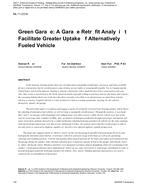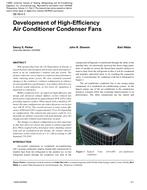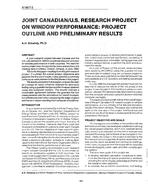The National Institute for Occupational Safety and Health (NIOSH) has carried out health hazard evaluations in five large office buildings where hypersensitivity pneumonitis (HP) and other respiratory diseases have been alleged or reported . Environmental studies made both in the occupied space and in the heating, ventilating, and air-conditioning (HVAC) system of each building are described. Several buildings were characterized by a history of repeated flooding, and all contained mechanical systems with pools of stagnant water and microbial slimes. Preventive measures that may be effective in reducing building-associated microbial contamination and buildingassociated HP illnesses include the following: (A) Prevent moisture incursion into occupied space and HVAC system components; (B) Remove stagnant water and slimes from building mechanical systems; (C) Use steam as a moisture source in humidifiers; (D) Eliminate the use of water sprays as components of office building HVAC systems; (E) Keep relative humidity in occupied space below 70%; (F) Use filters with a 50% rated efficiency; (G) Discard microbially damaged office furnishings; (H) Initiate a fastidious maintenance program for HVAC system air handling units and fan coil units.
Units: Dual
Citation: Symposium, ASHRAE Transactions, 1986, vol. 92, pt. 1B, San Francisco
Product Details
- Published:
- 1986
- Number of Pages:
- 21
- File Size:
- 1 file , 2 MB
- Product Code(s):
- D-SF-86-09-3


